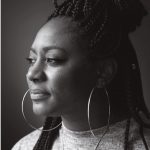Mmusi Maimane Biography
Mmusi Maimane whose full name is Mmusi Aloysias Maimane was born on 6th June 1980 in Transvaal Province, South Africa. He is a South African politician and the Ex-leader of South Africa’s opposition Democratic Alliance (DA) political party.
Mmusi Maimane Age
He was born on 6th June 1980. He is 39 years old as of 2019.
Mmusi Maimane Family
His mother is Ethel Maimane and his father was Simon Maimane.
Mmusi Maimane Wife
He married Natalie Maimane in 2005 and they have two children. Kgalaletso Maimane and Kgosi Maimane whose grandparents are Simon Maimane and Ethel Maimane.
Mmusi Maimane Children
Together with his wife Natalie Maimane, they have two children named above.
Mmusi Maimane Wedding
Mmusi and Natalie met at church. Eight months later, they tied the knot but obstacles and racial tensions were a reality. They had to dispel misconceptions about their interracial marriage.
Mmusi Maimane Education Background
- He attended Allen Glen High School, where he matriculated in 1997.
- He graduated from the University of South Africa with a Bachelor of Arts in Psychology.
- He has a Masters Degree in Public Administration from the University of Witwatersrand.
- He also has a Masters in Theology from Bangor University, Wales.
Mmusi Maimane Political Career
In 2010 he applied to run as a DA candidate for Johannesburg City Council and also for internal election as the DA candidate for Mayor of Johannesburg. In 2011 he was selected as DA National Spokesperson.
At the 2012 DA Federal Congress, Maimane was elected as Deputy Federal Chairperson. In 2013 he applied to run as the DA candidate for Gauteng Premier.
In the 2011 Local Government Elections, he lost, therefore, taking up the position of Leader of the Official Opposition. In Council, Maimane served on the Finance Committee, and on the Governance Committee that he had personally pushed to have constituted.
The DA grew its share of the vote in Gauteng substantially in the 2014 election with Maimane at the helm, but the ANC retained control of the province. Following this, Maimane opted against serving in the provincial legislature and was instead sworn in as a member of the National Assembly of South Africa.
The DA’s parliamentary caucus met on 29 May 2014 to decide on new parliamentary leadership. Maimane was the only candidate for the post of Leader of the Opposition in the National Assembly and was elected as the new Leader of the Opposition, becoming the first black male to hold the position in South Africa’s history.
On 5 June 2014, at Parliament in Cape Town, Maimane announced his Shadow Cabinet. On May 10, 2015 he was elected leader of the DA at the party’s 2015 Federal Congress in Port Elizabeth.
Mmusi Maimane resigned as leader on Wednesday, October 23, declaring that the party he has led for four years “is not the vehicle best suited to take forward the vision of building one South Africa”.
Within the parliamentary caucus of the party, Maimane’s comments were met with widespread outrage, his resignation as parliamentary leader seemingly inevitable.
Mmusi Maimane Church
He is a preacher at Discovery Church in Randburg, but he said he was most likely to reconsider preaching after his election as DA leader.
Mmusi Maimane Contact Details – Mmusi Maimane Email Address
DA Leader’s Office
Phone: +27 (0) 21 465 1431
Fax: +27 (0) 21 466 8394
Email: leader@da.org.za
Postal Address:
The Democratic Alliance
P.O. Box 15
Cape Town
8000
Mmusi Maimane Instagram
https://www.instagram.com/p/BoJQWhmDNVs/?utm_source=ig_web_copy_link
Mmusi Maimane Twitter
Mmusi Maimane Exposes ANC
Mmusi Maimane Interview on Race, Land and Coalitions
Source: HuffingtonPost
Why entrench a clause about the support or non-support of quotas in the DA constitution?
Mmusi Maimane: It is like saying ‘we don’t support apartheid’. Apartheid was a form of quotas, it said ‘you are white, therefore you are a group, you must oppress the other group’. Also, where there were jobs there was job reservation, there was the Group Areas Act, which dictated where you can live. If you go down the quota route… firstly, it’s impractical to do.
It takes away the rights of the individual to self-identify. I am a proud black South African, but that’s not the only thing I am about, I also think a whole lot different from other people who say they, too, are black. Quotas also speak to racial representivity… if you’re a rugby team, you can’t say ‘let’s look at how many women and how many black people are there’ and then replicate them in the team… it’s just impractical. Rather try and ensure that your plan to attract people is much better.
The party’s explicit support for diversity and implicit rejection of quotes is significant. Is it a change from before?
Mmusi Maimane: We are seeing a rise of racial nationalism, a rise in racism. So when you go to Parliament and you debate land there are, according to some, black parties and white parties. It is the worst place we can ever be. I fought for this clause and I’m glad congress adopted this.
My dream is that there should never, ever be a domination of one race over another. I have two kids who come from a mixed race background. I would hate for them to have to one day belong to a party for their race. I want them to know that they are home in the DA, regardless of who they are. For example, among the leadership, we have leaders elected who are gay.
That’s important. Growing up in the townships, to be gay was the ultimate wrong. Now, I don’t need to be gay to fight for the rights of gay people, I’m just saying diversity must apply to the whole spectrum. I think it’s a legacy I want to hand over to the next generation. That’s why diversity must be in the constitution as a value.
Where is the race war in the DA located?
Mmusi Maimane: I don’t know, actually. I was looking for it for the whole duration of the congress. That some have said we have this race against that race is the biggest load of rubbish. I think its poor analysis [of the DA].
I had a discussion with Gavin Davis [about his reservations on the diversity clause], who I’ve worked together with, and we disagreed on certain things. But I didn’t challenge him because he was white, I did so because he said something I didn’t necessarily agree with.
That’s the beauty of democracy. You contest and then come out with better ideas than you originally had. I had differences with Makashule Gana [about the same clause], but we came together and worked out something that was better than the original.
Is the granting of title deeds to landless the answer to the question of ownership and land?
Mmusi Maimane: No, it’s not the only answer. Title deeds are important as far as urban ownership and the protection of property rights go. The ANC says it will give people houses and then they wait for years, the DA says we’ll give you a title deed.
That’s one aspect of urban land reform. But look, when it comes to titles in rural areas, we don’t know who owns what. If we only talk about communal land ownership, you end up with replacing the minister of land affairs with the minister of traditional leadership.
We have to get to a point where we give people titles. But as far as agricultural land goes, we’ve always advanced the idea of share equity schemes. In simple terms: if you work the land, you must have equity in it.
Will the DA consider coalitions with the ANC in future?
Mmusi Maimane: As I said when I extended a hand of friendship to all political parties: we need to agree on some guiding principles. We must agree on the Constitution, a market-based economy… that’s why we couldn’t go into a formal coalition with the EFF, because they believe the state must be at the centre of power.
I think it’s wrong. I think the state must be the last formation at the centre. I think the [internal] coalition can’t work because there are those that say the Constitution is the problem and those that say it is not the problem. There are those that are for and those that are against the market.
The future of South Africa, maybe not in 2019 but certainly later, where we agree… let the ANC split up and let those who agree with the DA on the markets and non-racialism work together. There will be some who will work with the EFF. I think it will be better.
Will the ANC still exist in its current shape and form in five years’ time?
Mmusi Maimane: It can’t, it’s not sustainable… they are going to tear each other apart, especially on this land issue. Even though their conference adopted a motion on it, the truth of the matter is that many in the ANC don’t agree on it.
President Cyril Ramaphosa has been in office for almost 60 days. How has he fared?
Mmusi Maimane: A great start, but I think he is starting to realise that there actually is no ‘new dawn’ for the ANC. The reality is that he might have won the leadership, but Jacob Zuma still has the party – and you could see it in Cabinet, in policy proposals.
Quite frankly, I can’t think of any reforms he’s implemented other than those that were forced on him by law. We forced him to agree not to pay for Zuma’s legal fees, we had to force him to change the Eskom board because if he hadn’t, Eskom would not have been allowed to trade in bonds. We can look at nice sentiment after 60 days, but I think he has missed an opportunity to radically reset things. People are desperate for change now.
Mmusi Maimane News
Mmusi Maimane withdraws candidacy for Western Cape premier
Updated On: 18th September 2018
Source: timeslive.co.za
DA leader Mmusi Maimane has withdrawn his candidacy for premier of the Western Cape.
The Democratic Alliance announced on Tuesday that Maimane had informed the party’s Federal Executive (FedEx)‚ which met in Cape Town‚ that he had decided to decline the request for him to stand as the DA’s candidate for premier of the Western Cape.
“This was a request that required careful consideration and consultation with the relevant party structures which made the initial request to him‚” said party spokesperson Solly Malatsi in a statement.
Malatsi said the FedEx would meet again later on Tuesday to consider which candidate in the Western Cape would be selected as the DA’s candidate for premier in the province. The party would announce the successful candidate on Wednesday.
Meanwhile‚ Community Safety MEC Dan Plato will be the next Mayor of Cape Town‚ returning to an office he occupied for two years between May 2009 and June 2011.
Malatsi said the party’s selection panel for the mayoralty of Cape Town had recommended Plato following an interview process and that its decision had been ratified by FedEx on Tuesday morning.
Plato will succeed Patricia de Lille who is leaving the mayoral office at the end of October following a prolonged internal battle with the DA‚ which at times called for the intervention of the courts.
None was more scathing in his criticism of the party leader than the current provincial leader of the DA‚ Bonginkosi Madikizela‚ who questioned the wisdom of Maimane standing in the province already governed by the DA instead of focusing on getting the ANC below 50% in next year’s elections.
“Firstly‚ the federal leader in terms of the constitution has the right to stand on any list… We are in government in the Western Cape. We might be experiencing some challenges but we are not going to lose Western Cape‚ I am saying that with confidence because‚ besides the challenges that we have‚ the opposition has its own challenges‚” said Madikizela.
“Strategically as the party… the next target is Gauteng and the Northern Cape… I find it strange that the federal leader would abandon the national project‚ because remember we have a national project to get the ANC below 50%‚ but also if the target is to win two extra provinces‚ you would expect the federal leader who believes that he has a profile that is better than us – and that is true – could have made himself available in one of those two provinces.
“I must be honest‚ I find it strange that the federal leader would make himself available in a province that we are governing. I have made those views very clear and known to him‚” said Madikizela on Saturday.
According to DA sources‚ Madikizela was in the top three of those the party was considering for Western Cape premier candidacy‚ behind Alan Winde and David Maynier.
In its statement on Tuesday‚ the party said its national electoral objectives stood as Maimane’s number one priority‚ and the party stood behind his commitment to build a better South Africa and stronger DA.
“It is essential that we grow our support across the country in order to bring change that builds One South Africa for All.”
About InformationCradle Editorial Staff
This Article is produced by InformationCradle Editorial Staff which is a team of expert writers and editors led by Josphat Gachie and trusted by millions of readers worldwide.
We endeavor to keep our content True, Accurate, Correct, Original and Up to Date. For complain, correction or an update, please send us an email to informationcradle@gmail.com. We promise to take corrective measures to the best of our abilities.







